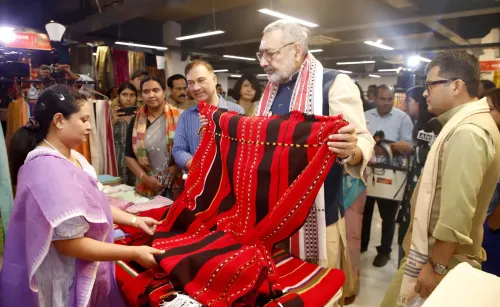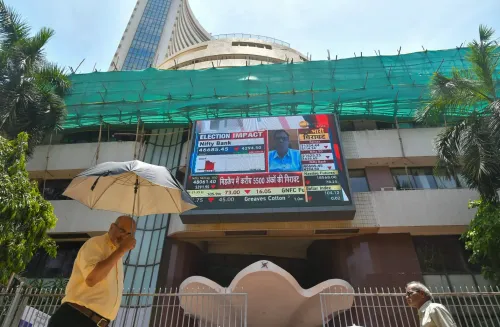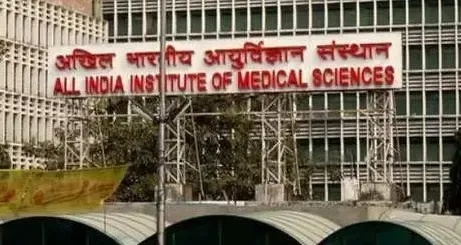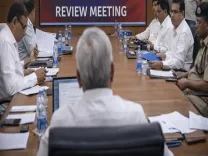How Can ANRF Assist Medical Colleges in Enhancing Clinical Innovation?
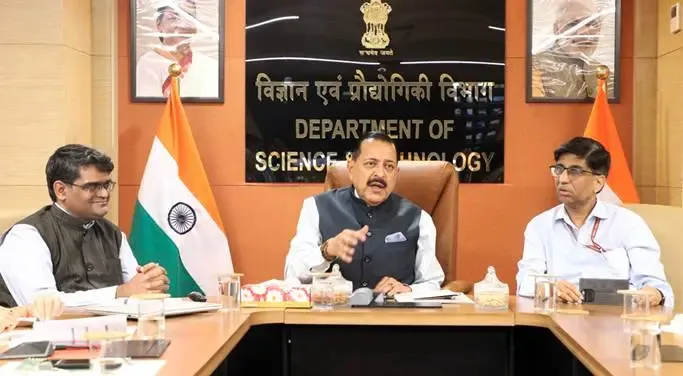
Synopsis
Key Takeaways
- Establishment of medical research parks to foster innovation.
- Creation of a cloud infrastructure for research accessibility.
- Focus on AI-driven scientific research to accelerate discoveries.
- Encouraging partnerships between academia and industry.
- Prioritizing national relevance in research areas.
New Delhi, May 5 (NationPress) Union Minister of State (Independent Charge) for Science and Technology Dr. Jitendra Singh on Monday conducted an extensive review of the Department of Science and Technology (DST).
He called upon the newly established Anusandhan National Research Foundation (ANRF) to support medical colleges in advancing clinical innovation throughout the nation.
“Investigate the potential for aiding medical colleges in creating their own medical research parks -- an initiative that could enhance clinical innovation and stimulate local biotech entrepreneurship,” Singh urged the ANRF.
The Minister assessed ANRF’s strategy to develop a “cloud of research and innovation infrastructure,” a digital platform designed to provide deep-tech startups and academic institutions access to underutilized scientific equipment and facilities nationwide.
This initiative aims to democratize research capabilities, particularly for smaller entities that often find it challenging to access high-end laboratory tools.
Singh also advocated for audacious new pathways in science-driven growth, emphasizing ANRF’s focus on “AI-for-Science.”
The program intends to harness artificial intelligence to expedite discoveries in physics, chemistry, and biology by employing machine learning to model intricate scientific equations.
Additionally, Singh revisited the idea of “deep science-to-deep tech acceleration,” encouraging the ANRF to concentrate on transforming academic research -- including publications and patents -- into commercial technologies. He stressed the importance of partnerships with leading industry players and the development of venture-builder models to ensure that discoveries are not restricted to laboratories.
“Focus on critical areas of national significance, including climate forecasting, material science, aerospace, biochemistry, and drug development,” Singh instructed the ANRF.
“Now is the time for India to transition from isolated innovation to a more interconnected, impact-driven ecosystem that integrates research, startups, and industry,” he added.
The Minister further emphasized the necessity of establishing an indigenous “India AI Open Stack” -- a foundational AI framework integrated with scientific and engineering models tailored for Indian researchers. This, he remarked, could position India as a global leader in AI-driven scientific applications.



